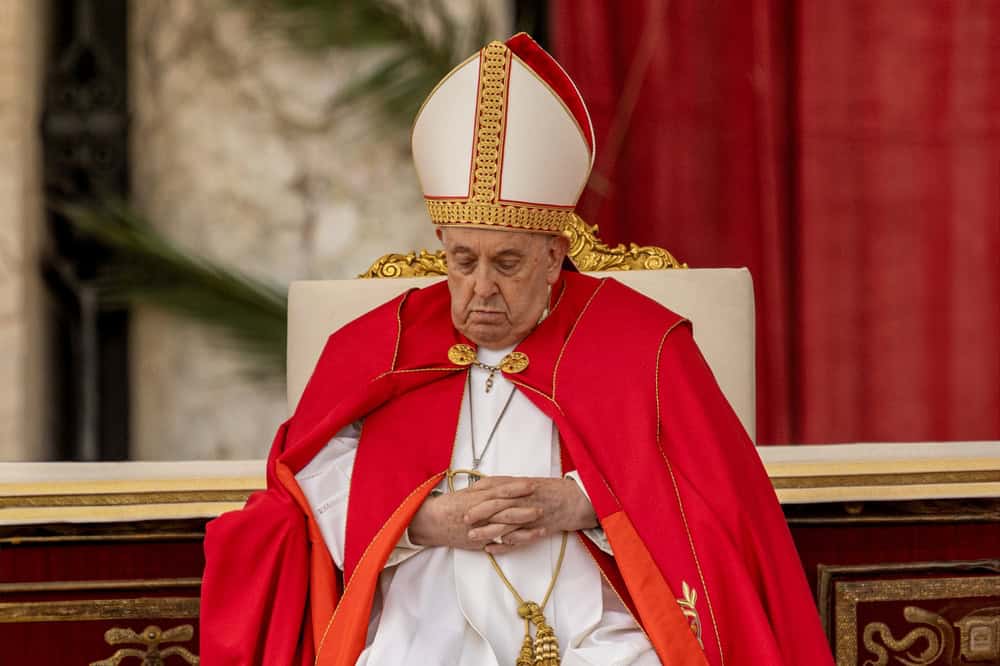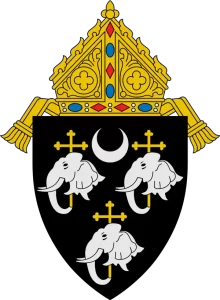The Associated Press reports that Pope Francis, the 266th pontiff of the Roman Catholic Church, died at 7:35 a.m. local time today, at his residence in the Domus Sanctae Marthae. He was 88. The Vatican announced his death followed a cerebral stroke, which led to coma and irreversible cardiocirculatory collapse, after months of battling double pneumonia and related complications.
Lauded by many for his humility and commitment to modernization, Francis was the first Latin American and Jesuit pope. His legacy includes groundbreaking efforts on climate change, institutional reform, and social justice. But for survivors of clergy sexual abuse, his papacy remains a source of pain and unresolved trauma.
A Pontificate That Promised Progress But Didn’t Deliver
Upon his election in 2013, Pope Francis presented himself as a reformer who would restore trust in a Church scarred by decades of clergy abuse scandals. He defrocked high-profile figures like Cardinal Theodore McCarrick, the former Archbishop of Washington, D.C., who was dismissed from the clerical state in 2019 for sexual abuse of adults and minors, launched Vos Estis Lux Mundi (a framework to hold bishops accountable), and publicly condemned abuse as a “monstrosity.”
Yet many survivors and advocacy groups say his actions didn’t match his rhetoric.
“What we most needed from this pope was justice for the Church’s own wounded, the children and adults sexually abused by Catholic clergy. In this realm, where Francis had supreme power, he refused to make the necessary changes,” Anne Barrett Doyle, co-director of BishopAccountability.org, a watchdog organization that maintains one of the most comprehensive databases of clergy abuse cases, said in a statement per Reuters.
The Chile Scandal: A Turning Point in Survivor Trust
Perhaps no moment defined survivor disillusionment more than Pope Francis’ 2018 visit to Chile.
While in Santiago, Pope Francis–the first non-European Pope in 1,000 years–accused abuse victims of slandering Bishop Juan Barros, who had long been accused of covering up for notorious abuser Fr. Fernando Karadima, described by NPR as Chile’s most notorious pedophile.. “There is not one single piece of proof against him. It’s all calumny. Is that clear?” Francis said at the time.
The backlash was immediate and fierce.
Survivors, including Juan Carlos Cruz, said the pope’s comments retraumatized them and signaled that the Church’s default posture was still to defend hierarchy over victims. Only after global pressure did Francis reverse course, sending investigators and later accepting Barros’ resignation — a move many described as too little, too late.
Francis admitted he had made “grave errors in judgment” in the case, but trust was already eroded. “We were accused of lying,” Cruz told AP. “The pope’s words weren’t just dismissive — they reopened wounds.”
Survivors Say the Vatican Obstructed Justice
Francis’ supporters often cite his creation of a Vatican abuse commission and new reporting protocols. But these were frequently hampered by internal resistance and a lack of enforcement.
In 2020, one of the commission’s original members, survivor and activist Marie Collins, resigned in protest, citing “cultural resistance” within the Vatican that made real accountability impossible.
A 2023 AP investigation revealed that even under Pope Francis, the Vatican fought attempts by national courts to access Church documents. In France, Germany, and the United States, bishops accused of shielding predators were quietly retired or reassigned, rather than disciplined or defrocked.
Perhaps most notorious, the 2002 Boston Archdiocese scandal predated Pope Francis’s papacy, but set a precedent for the global scrutiny of the Church’s handling of abuse cases. Revealed by The Boston Globe’s Spotlight team, the investigation revealed how Church officials reassigned abusive priests rather than removing them.
In 2018, a Pennsylvania grand jury report documented over 300 priests abusing more than 1,000 children across six dioceses over seven decades. Pope Francis responded with a letter expressing “shame and repentance,” acknowledging the Church’s failure to act and stating, “We showed no care for the little ones; we abandoned them.”
Bankruptcies, Settlements, and Shielding Assets
Meanwhile, in the United States, dioceses increasingly turned to bankruptcy court as abuse lawsuits mounted. These filings, critics say, often served to shield Church assets rather than fully compensate victims.
- In 2023, the Archdiocese of San Francisco filed for Chapter 11 amid more than 500 claims.
- The Archdiocese of Baltimore followed suit in 2023 after a devastating state report revealed over 600 children were abused by more than 150 clergy members across decades.
- The Diocese of Rockville Centre on Long Island, NY cited over 200 lawsuits when filing in 2020.
- The Diocese of San Diego filed for bankruptcy in 2024 after 457 sex abuse lawsuits were filed under California’s statute extension.
Globally, the numbers are staggering. A 2021 French report estimated that 330,000 children were abused by clergy and Church personnel since 1950. In Germany, more than 3,600 cases were documented between 1946 and 2014. The actual number is likely far higher, as many survivors never come forward.
According to BishopAccountability.org, over $4.6 billion has been paid out in settlements in the U.S. alone since the 1980s. The largest settlements include:
- $880 Million: Los Angeles Archdiocese (2024)
- $323 Million: Diocese of Rockville Centre, NY (2024)
- $166 Million: Northwest Jesuits (2011; OR, WA, AK, ID, MT)
A Legacy of Pain — and Hope for Change
As cardinals prepare for the next conclave, the survivor community is watching closely.
“Pope Francis was supposed to be the one to fix this,” said SNAP in a statement following his death per Reuters. “Instead, he gaslit victims, protected complicit bishops, and oversaw an institution more focused on image than justice.”
What comes next will shape the Church’s credibility for generations. Survivors want more than prayers and apologies; they want systemic change, real accountability, and a Church that no longer prioritizes secrecy over safety.
Learn More About Your Legal Rights
The death of Pope Francis marks the end of a papacy that survivors of Catholic clergy abuse view with a mix of frustration, retraumatization, and unfinished justice. While apologies and reforms were promised, many believe true accountability remains elusive.
If you or someone you love is a survivor of Catholic Church sexual abuse, you may still have time to take legal action.
Visit our Catholic Church Sexual Abuse Lawsuit Guide to learn more about your rights, recent settlements, statute of limitations updates, and how to speak with an experienced sexual abuse attorney—confidentially and compassionately.




